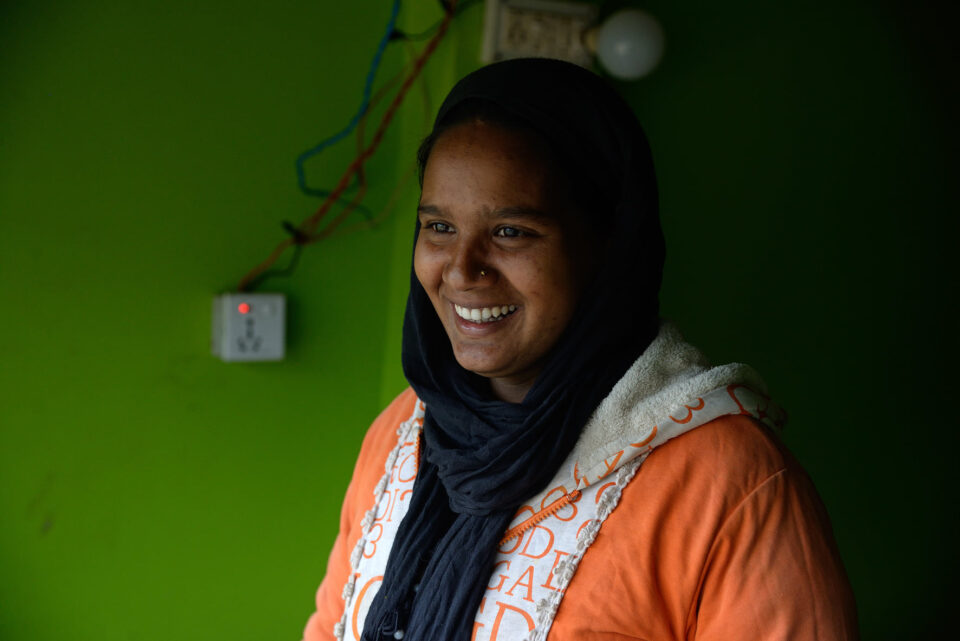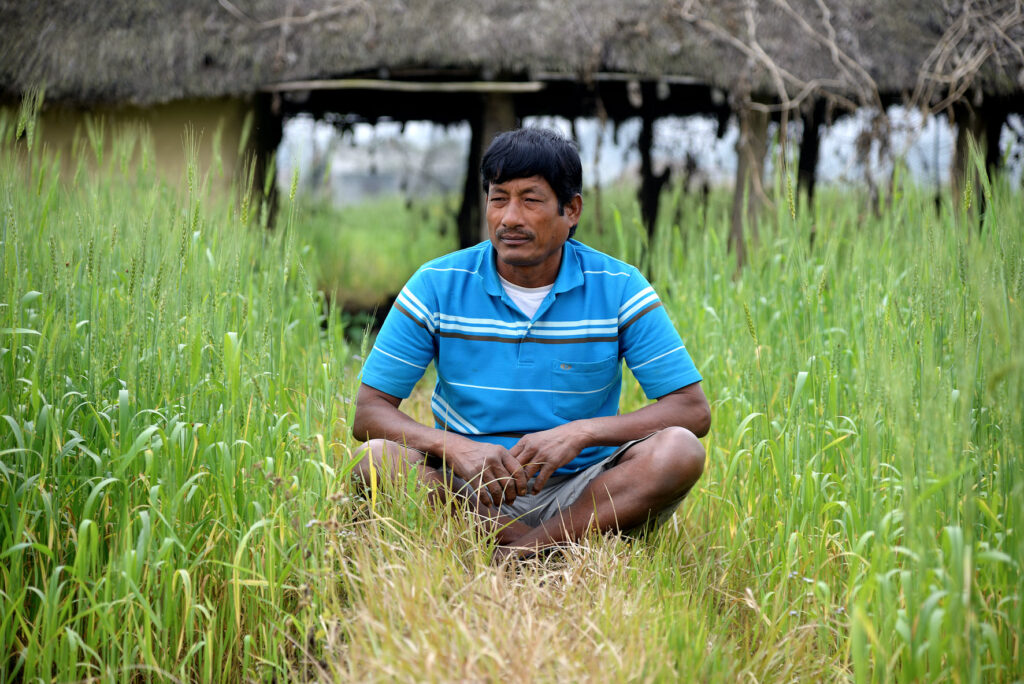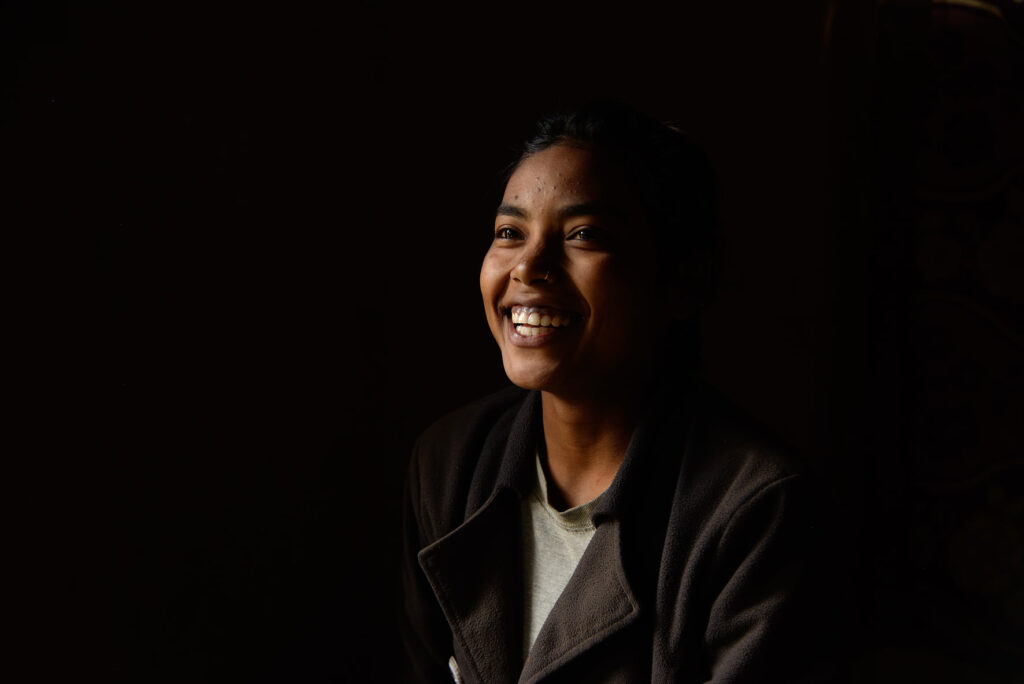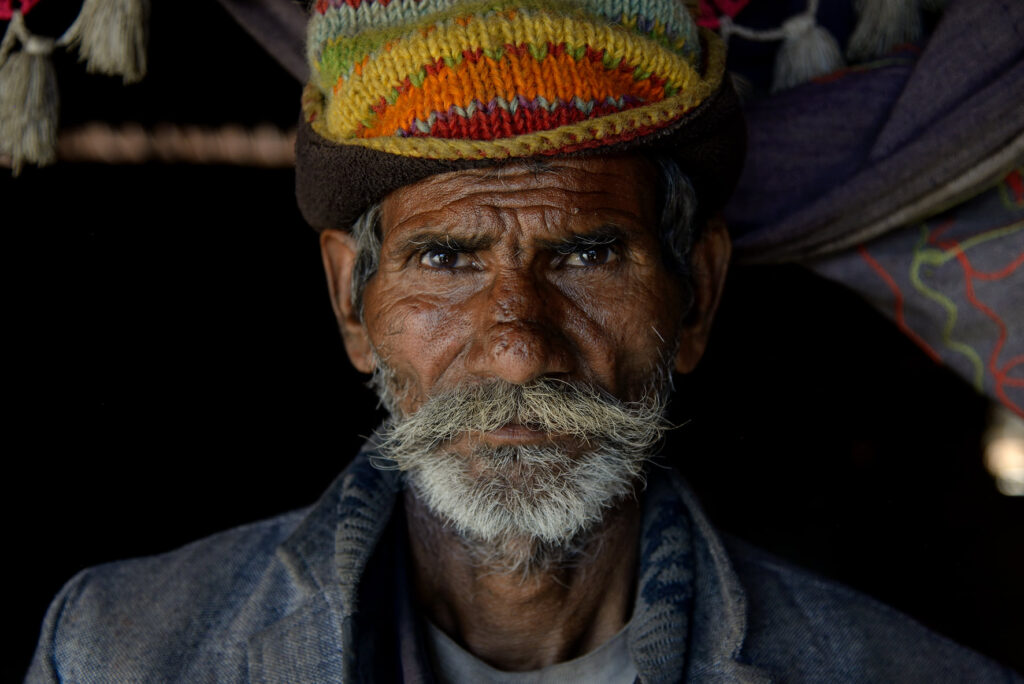
Rekha Mangta Duduwa Gp 6, Banke
“My sister would put her clothes on me and take me to work. She did that because she wanted me to look older. The Sahus knew that child labour was a crime and if I looked underage they would not hire me. So it was sister’s trick to fool the Sahus. I also did not deny her as I knew she made me work so that we all could pay the loan that my father had put on us after he passed away. He was a man who drank excessively you see. Sold his land and took loans to satiate his habits.
School was a thing to dream of. And when you are empty-stomach all you can think of is food. I tried going to school once but I was always hungry and could not focus. I remember one day, I had become very weak. I had not eaten for days. My brother felt sorry for me. I went to the kitchen and found some rice but it had mould. The white rice was turning grey, slowly rotting. I remember he washed it and fried it on some oil and fed me. That day, I realised that if I did not work I would be hungry and die. I realised what poverty was. I was 7 years old. Everyone around was hungry you see. And I knew no one was going to give me their share of rice for free. So I worked. Barefoot. Sometimes, selling vegetables, sometimes breaking stones, sometimes washing dishes and sometimes carrying weight.
When I was working in Nepalgunj as a housemaid I expressed to the house owners my interest in going to school. They agreed on the condition that they were not going to pay me wages. When mother heard this, she was furious. She came barging into the house and threatened the owners. “You have to pay her the wages, I need it. I do not care if you send her to school or not. It is not important for me.” So my dream of going to school died there.
I did not want to get married either. I wanted to work or stay home. I told my mother that I was young and did not want to leave. But they insisted. My husband did not seem like the serious type. Not someone who was made to raise a family. He wore fancy clothes and glasses and I was a simple person. But my words fell on deaf ears and I was married to him. But he turned out to be okay. He did not trouble me. Did not beat me and slowly with added responsibility, he changed. He worked hard and assisted me at home to look after the children we had together. We were a good couple. We are a good couple but life was difficult financially. You see, our ancestors ‘begged’ for money and food. Many of us did not see school. Many of us were deprived of the facilities that the state offer to its citizens. So we toiled.
When I received sewing training through an organisation, I was really happy. It was a new thing for me. Learning was a new thing for me. Applying techniques was a new thing for me. Listening to instructions and following them was new to me. It changed. I understood what a process was. But when the training was over I felt sad. Leaving the sewing machine that I had used was not easy. When I came home, I wished I had a sewing machine and I expressed my desire with the organisation to start a home shop where I could cut and sew. I told them I could make a living. I could pay for the needs of my family. Soon they bought me a sewing machine and I have been using it. I have some customers who trust me with their and their children’s clothes.
Although we are marginalised and neglected by everyone we do our best to survive. They say change is slow but I did not imagine it to be this slow. I wished change came fast and I wished change touched our lives too.”
#RightToEarnALiving
Stories of Nepal x ICCO Cooperation South Asia x European Union in Nepal





